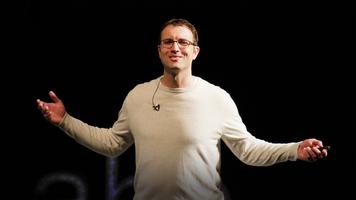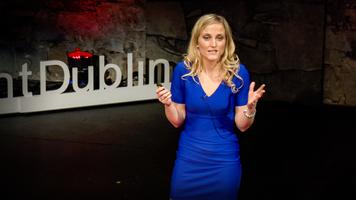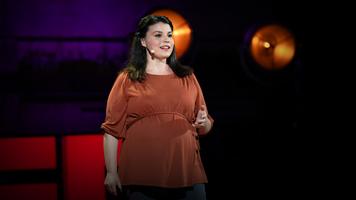You have chosen A level chemistry! Hooray!
If you have chosen A-level chemistry one of the chemistry teachers will be in touch soon to arrange help and support through a weekly tutorial session. Below are some activities you can start to work through to prepare you for the transition from GCSE to A level. There are also some recommended books, magazines, videos and websites to broaden your depth and application of the subject.
Useful revision book - Amazon £4.95
This fantastic Head Start book from CGP is the ideal way to bridge the gap between GCSE and A-Level Chemistry. It recaps all the crucial topics you’ll need to remember from GCSE, with crystal-clear study notes and examples, plus practice questions to test your understanding. We’ve also included introductions to some of the key topics you’ll meet at A-Level. It’s the perfect way to hit the ground running at the start of the course, whichever exam board you’re studying!
Make sure you have the basics!
These activities cover fundamental chemistry, practical and maths skills required at A level:
Brush up on balancing equations!
Practice balancing basic equations using this online simulator.
Preparation tips from the exam board:
Keep busy and learning with loads of suggestions here:
I really like the ideas for mini research projects - why is copper sulphate blue?!?!
Get to grips with some new information:
Use these info graphics to brush up your knowledge of organic chemistry:
Chemical Analysis
More about the techniques used to analyse chemical substances that you will learn about on the A level course: https://edu.rsc.org/resources/collections/analytical-chemistry-introductions
Titrations: secure your foundation ready to build on your knowledge
Get super comfortable with titrations using this online simulator:
http://www.rsc.org/learn-chemistry/resources/screen-experiment/titration/experiment/2
Broaden your knowledge and application of Chemistry - TED talks
Jakob Magolan: A crash course in organic chemistry
Jakob Magolan is here to change your perception of organic chemistry. In an accessible talk packed with striking graphics, he teaches us the basics while breaking the stereotype that organic chemistry is something to be afraid of.
https://www.ted.com/talks/jakob_magolan_a_crash_course_in_organic_chemistry
Triona McGrath: How pollution is changing the ocean's chemistry
As we keep pumping carbon dioxide into the atmosphere, more of it is dissolving in the oceans, leading to drastic changes in the water's chemistry. Triona McGrath researches this process, known as ocean acidification, and in this talk she takes us for a dive into an oceanographer's world. Learn more about how the "evil twin of climate change" is...
https://www.ted.com/talks/triona_mcgrath_how_pollution_is_changing_the_ocean_s_chemistry
Cathy Mulzer: The incredible chemistry powering your smartphone
Ever wondered how your smartphone works? Take a journey down to the atomic level with scientist Cathy Mulzer, who reveals how almost every component of our high-powered devices exists thanks to chemists -- and not the Silicon Valley entrepreneurs that come to most people's minds. As she puts it: "Chemistry is the hero of electronic communications."
https://www.ted.com/talks/cathy_mulzer_the_incredible_chemistry_powering_your_smartphone
Visit some websites to support your learning
Royal Society of Chemistry (RSC)
The website gives you:
- the latest news in chemical research
- educational resources
- careers advice
- student magazine (The Mole)
Periodic Table of Videos by Martyn Poliakoff www.youtube.com
Books recommended for further reading
All things are made of atoms, little particles that move around in perpetual motion, attracting each other when they are a little distance apart but repelling upon being squeezed into one another. This is the first popular account of the fascinating story of the atom. No one ever expected the atom to be as bizarre, as capricious, and as weird as it turned out to be. Its story is one riddled with jealousy, rivalry, missed opportunities and moments of genius. John Dalton gave us the first picture of the atom in the early 1800s. Almost 100 years later came one of the most important experiments in scientific history, by the young misfit New Zealander, Ernest Rutherford. He showed the atom consisted mostly of space, and in doing so turned 200 years of classical physics on its head.
Like you, the elements have personalities, attitudes, talents, shortcomings, stories rich with meaning.
Here you'll meet iron that rains from the heavens and noble gases that light the way to vice. You'll learn how lead can tell your future while zinc may one day line your coffin. You'll discover what connects the bones in your body with the Whitehouse in Washington, the glow of a streetlamp with the salt on your dinner table.
Unlocking their astonishing secrets and colourful pasts, Periodic Tales is a voyage of wonder and discovery, showing that their stories are our stories, and their lives are inextricable from our own.
Oliver Sacks evokes, with warmth and wit, his upbringing in wartime England. He tells of the large science-steeped family who fostered his early fascination with chemistry. There follow his years at boarding school where, though unhappy, he developed the intellectual curiosity that would shape his later life. And we hear of his return to London, an emotionally bereft ten-year-old who found solace in his passion for learning.
John Emsley's unusual study traces the history and development of the use of phosphorus, an autocombustive element that was discovered long before humans were responsible or capable of controlling its awesome power.
Read some magazines / journals
- Royal society of chemistry- The Mole (published 2012 - 2015)
- New scientist
- Chemistry review (commissioned and edited at the University of York) - Our students subscribe to this in the Lower 6 and Upper 6.


